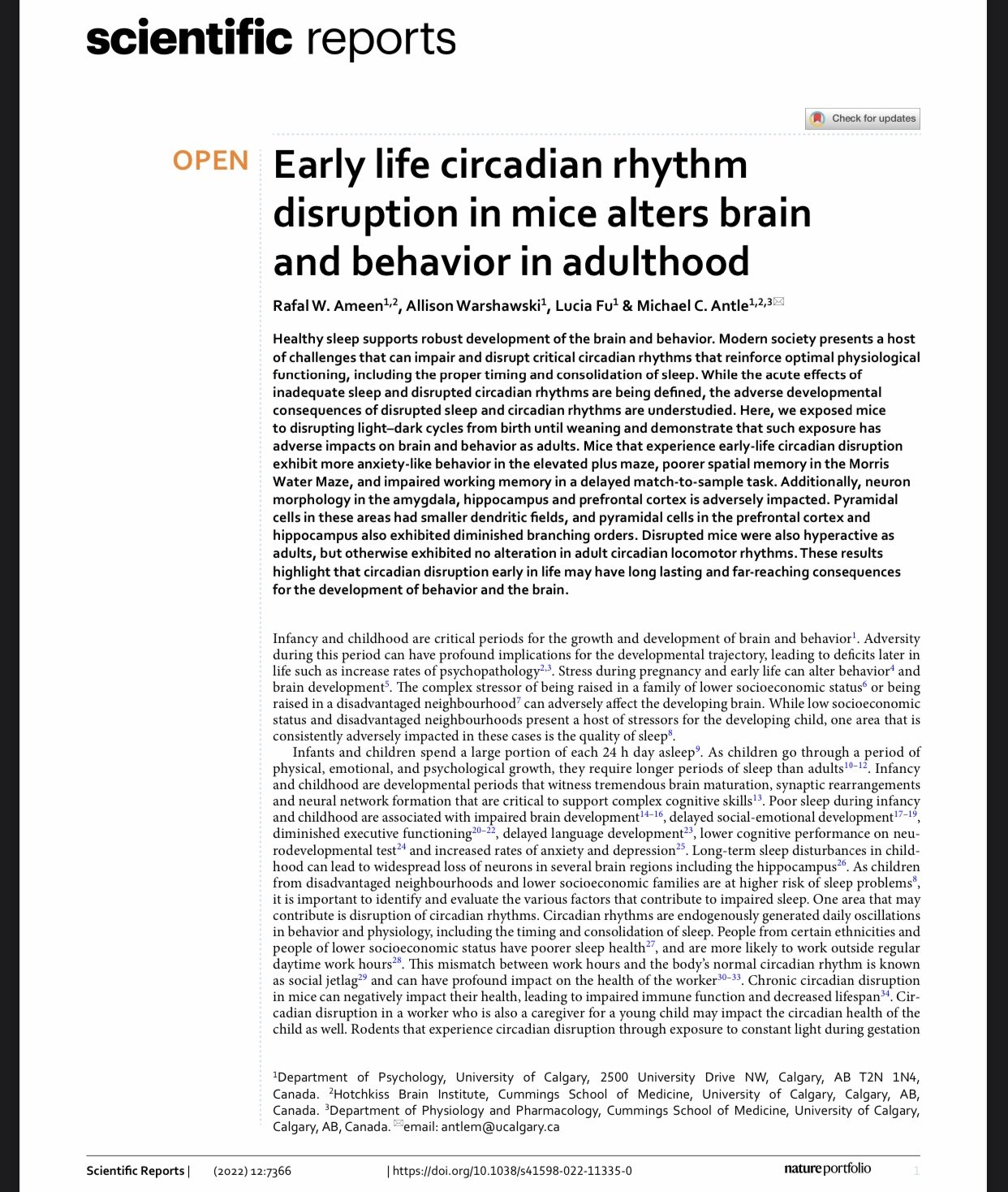Health begins with the light you live in. The AM light is a powerful opportunity to reset your circadian rhythms, that govern all of your body’s biological processes.
This is especially crucial during pregnancy and in the postpartum period, when development is at a sensitive stage.
Anyone can tell you it is also a stage when time flies and space just seems a perpetual chaos!
The study
Beginning on the day of birth, female mice and their litters were exposed to either a regular light-dark cycle or a disrupting light-dark cycle where dark onset was brought forward by 8 hours every second day.
Early circadian rhythm disturbances on adult spatial learning, working memory, and anxiety
The 12 mice were assessed using the Elevated Plus Maze. The disrupted animals had significantly less entries into the open arms than did the undisrupted control group. In other words, the diminished exploratory behavior is consistent with higher anxiety-like behavior in the disrupted animals.
Also, the disrupted animals spent significantly less time in the exposed arms (8.1 ± 11.0 s) compared to the controls.
The same mice were then assessed using Morris Water Maze. The disrupted animals took significantly more time to reach the platform compared to controls.
The researchers also examined neuronal complexity in the areas of the brain hippocampus, prefrontal cortex, and amygdala, respectively.
Circadian disruption during the last trimester and extending to the preschool years
The first 3 weeks postnatal in mice are comparable to a relatively wide developmental period in humans.
Postnatal days 1–10 exhibit developmental stages that correspond to the last trimester of pregnancy in humans, while brain development events in mice at postnatal days 20–21 are roughly equivalent to human brain development events observed at 2–3 years of age in children50.
This suggests that circadian disruption during the last trimester and extending to the preschool years could still have an impact on brain development. Indeed, poor sleep at 2 years of age is associated with less gray matter at 7 years of age14.
Additionally, poor sleep at 6–12 months of age17, or at 2 years of age18,19 were both predictive of delayed social-emotional development in children.
Why this is important for every mother and child
This study adds to the growing body of research we know about how circadian rhythms, including uneven sleep patterns, can affect health.
Other studies find similar effects in hyperactivity and increased anxiety.
Aside from socioeconomic status and other environmental stressors, one area that is consistently adversely impacted in these cases is the quality of sleep.
While in utero disruption led to more severe impairments in adulthood, significant deficits were still observed when circadian disruption was restricted to the postnatal period, such as was observed in the mouse study.
Infancy and childhood are critical periods for the growth and development of brain and behaviour. Adversity during this period can have profound implications for how the child develops, leading to deficits later in life such as increase rates of psychopathology.
If you are doing shift work, this could impact the circadian health of the child as well.
Sleep is a premium for any mom during pregnancy and in the precious post partum months with a newborn. Prioritising a regular, quality sleep routine is a crucial part of ensuring a healthy baby and his or her brain development, with implications far beyond just what we think we would observe.
Link to study: https://www.nature.com/articles/s41598-022-11335-0







